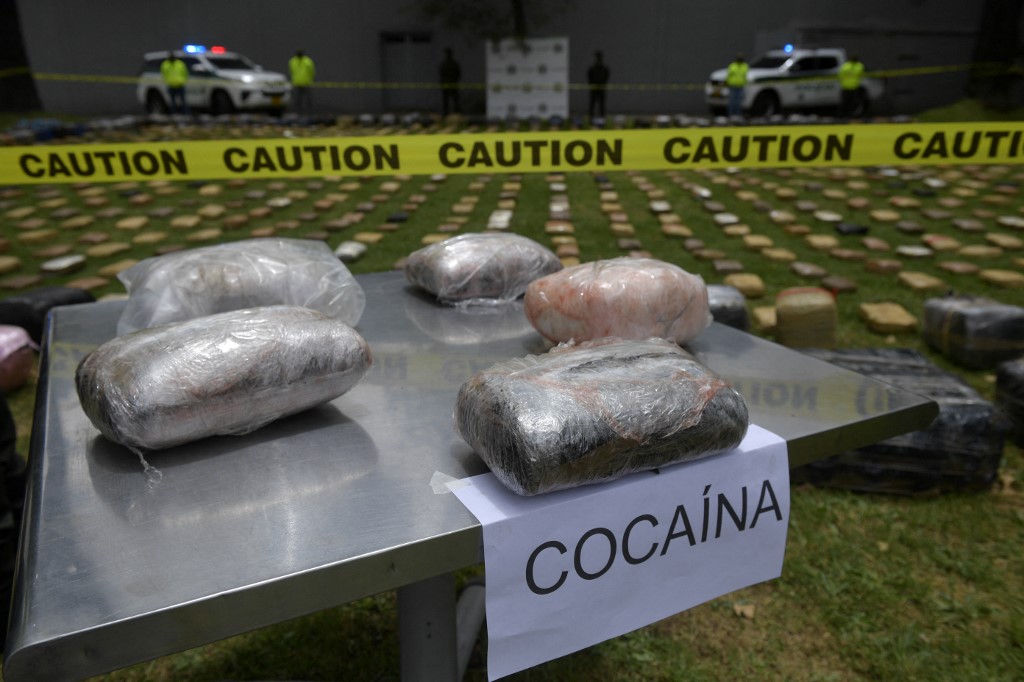Over the past four-and-a-half years, Colombian authorities have intercepted more than 6 tons of cocaine destined for Turkey, according to a special report by Voice of America’s (VoA) Turkish edition, citing data from the Colombian Anti-Narcotics Police (DIRAN).
In the past month alone more than half a ton of cocaine bound for Turkey was confiscated in Colombia.
This surge comes in the wake of the Spanish law enforcement’s announcement last week that it had dismantled the so-called “Balkan Cartel,” whose leaders were based in Turkey and Dubai. The cartel had been instrumental in the transatlantic cocaine trade.
The United Nations Office on Drugs and Crime’s (UNODC) 2023 report details Colombia’s significant role in the global cocaine market. The country produces nearly 80 percent of the world’s cocaine, with coca cultivation spanning approximately 230,000 hectares. The report notes that one hectare of coca can yield about 7.9 kilograms of cocaine.
One recent operation at a Colombian port exemplified the methods traffickers use to smuggle drugs. Narcotics teams discovered a suspicious container filled with buttons. Upon inspection, they found nine sacks marked with red stripes. Inside were brown plastic-wrapped, rectangular packages containing a white powder with the “JP” logo.
There have been multiple significant seizures recently.
In early May Colombian authorities intercepted 151 kilograms of cocaine destined for İstanbul in a container at Cartagena Port.
In a separate operation, Turkish police seized 373 kilograms of cocaine at Gemlik Port, also originating in Colombia.
From 2020 to the present, Colombian ports and airports have seen 41 cocaine busts among shipments to Turkey. Interestingly, arrests have been minimal, with most detentions occurring in small-scale operations. Only 16 people have been apprehended, all involved in transporting less than 20 kilograms through airports. Large-scale shipments, like the 4.9 tons seized in Buenaventura Port in 2020, have not resulted in arrests.
Colombian authorities emphasized a major seizure from 2020, reporting that on June 5, they intercepted 4,928 kilograms of cocaine concealed in a shipment of “granulated rubber” at Buenaventura Port, with the cargo destined for Turkey.
Experts believe these large shipments often involve multiple criminal organizations. They also note Turkey’s growing importance as a transit point for cocaine bound for Europe, the Caucasus and the Middle East. This trend is part of a broader increase in cocaine production and trafficking globally.
International efforts to combat cocaine trafficking continue to intensify. In January Moroccan police, in collaboration with Spanish security forces, seized 1.4 tons of cocaine concealed in a banana shipment on a European-flagged ship bound for Turkey.
The UNODC’s “Global Report on Cocaine 2023” emphasizes Turkey’s rising role as a transit country. In 2021 Turkish authorities seized a record 2.8 tons of cocaine, reflecting a sevenfold increase in drug seizures since 2014. The report notes that some cocaine reaches Turkey via West Africa, while other shipments come directly from Latin America. The outbound flow from Turkey primarily moves westward through the Black Sea and the Balkans.
In April 2024 Turkish police conducted the “Narkoçelik-11” operation, seizing 608 kilograms of cocaine and detaining 13 people across three provinces. This operation targeted an international trafficking organization led by Dani Talal Awad Abushanap, a Lebanese-Venezuelan national.
In October 2023 Turkish police intercepted 610 kilograms of cocaine hidden in a banana shipment from Ecuador at Mersin Port, detaining three suspects.
In May 2023 Dutch authorities found 1.1 tons of cocaine hidden among car tires in a container from Turkey at the Port of Rotterdam, with a street value of 84.3 million euros.
The crackdown on drug trafficking networks in Turkey has gained momentum following a cabinet reshuffle in President Recep Tayyip Erdoğan’s administration in June of last year. The new leadership appears to be taking a harder stance against drug trafficking, which was allegedly facilitated by authorities under the previous interior minister, Süleyman Soylu.
During Soylu’s time in office, Turkey faced allegations of involvement in international drug trafficking, primarily driven by Turkish mob boss Sedat Peker. In a series of dramatic videos in 2021, Peker accused Soylu and other high-ranking officials of protecting and facilitating cocaine trafficking networks.
Observers speculate that the recent shift in Turkey’s stance on drugs may be part of a broader effort to restore the rule of law and reassure international investors amid Turkey’s economic challenges.

